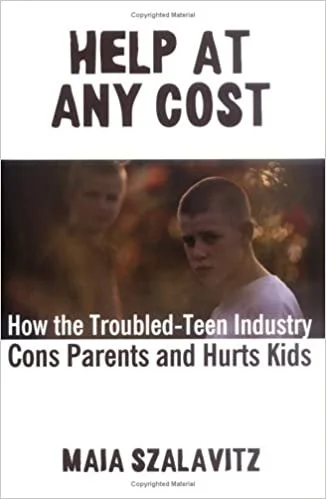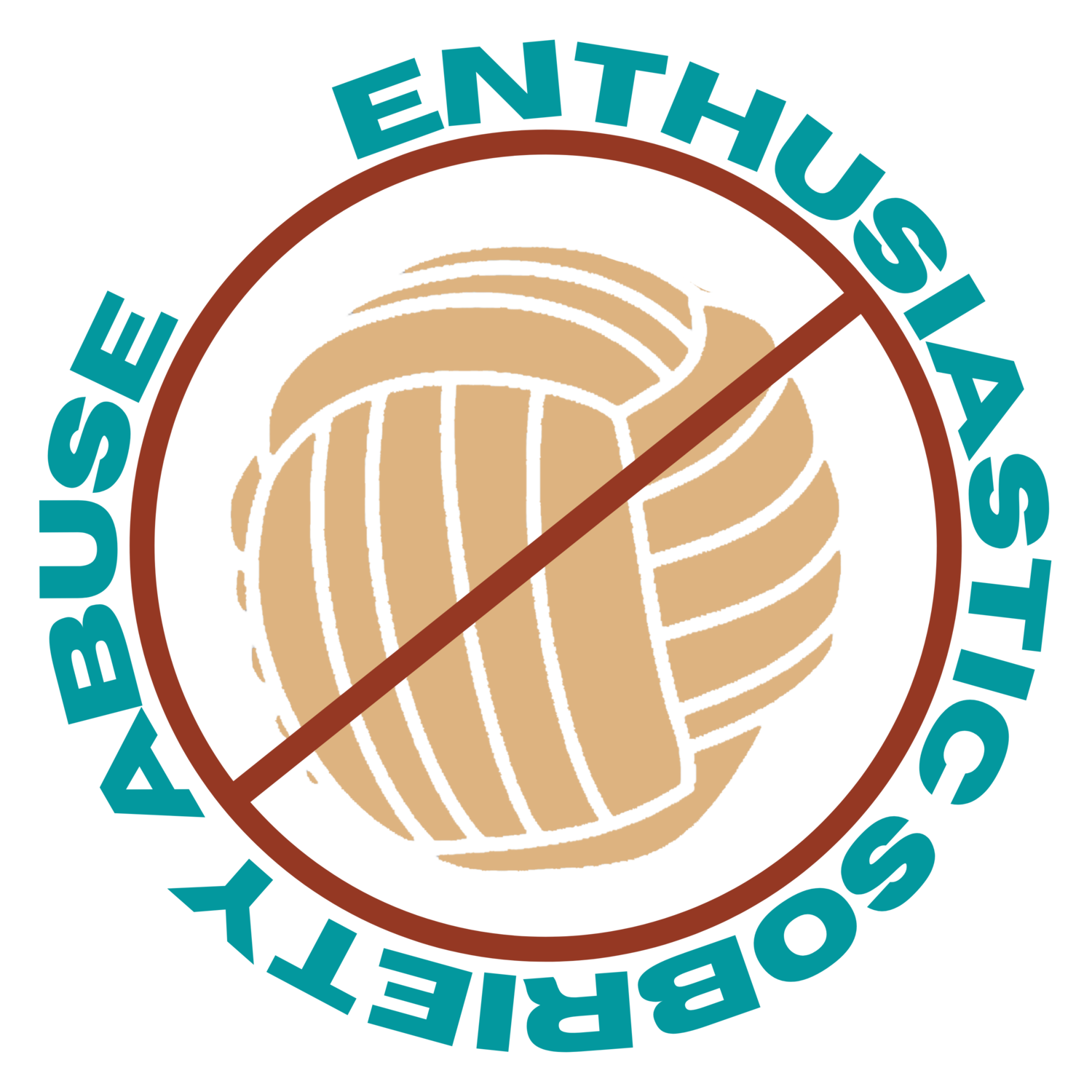Enthusiastic Sobriety Survivors Recommended Reading
-

Combating Cult Mind Control by Steven Hassan, PhD
If you’re reading Combating Cult Mind Control: The #1 Best-selling Guide to Protection, Rescue, and Recovery from Destructive Cults for the first time, please know that you’ve found a safe, respectful, compassionate place. This book can help you protect or regain your sanity, freedom, and health. It can also help you protect others from the use of mind-control techniques
-

Help at Any Cost by Maia Szalavitz
Maia Szalavitz's Help at Any Cost is the first in-depth investigation of this industry and its practices, starting with its roots in the cultlike sixties rehabilitation program Synanon and Large Group Awareness Training organizations likeest in the seventies; continuing with Straight, Inc., which received Nancy Reagan's seal of approval in the eighties; and culminating with a look at the World Wide Association of Specialty Programs-the leading force in the industry today-which has begun setting up shop in foreign countries to avoid regulation. Szalavitz uncovers disturbing findings about these programs' methods, including allegation of physical and verbal abuse, and presents us with moving, often horrifying, first-person accounts of kids who made it through-as well as stories of those who didn't survive. The book also contains a thoughtfully compiled guide for parents, which details effective treatment alternatives.
-

The Heart of Trauma by Bonnie Bradenoch
In this book, Bonnie Badenoch, a gifted translator of neuroscientific concepts into human terms, offers readers brain- and body-based insights into how we can form deep relational encounters with our clients and our selves and how relational neuroscience can teach us about the astonishing ways we are interwoven with one another. How we walk about in our daily lives will touch everyone, often below the level of conscious awareness.
The first part of The Heart of Trauma provides readers with an extended understanding of the ways in which our physical bodies are implicated in our conscious and non-conscious experience. Badenoch then delves even deeper into the clinical implications of moving through the world. She presents a strong, scientifically grounded case for doing the work of opening to hemispheric balance and relational deepening.
-

Trauma Stewardship
In Trauma Stewardship, we are called to meet these challenges in an intentional way. Lipsky offers a variety of simple and profound practices, drawn from modern psychology and a range of spiritual traditions, that enable us to look carefully at our reactions and motivations and discover new sources of energy and renewal. She includes interviews with successful trauma stewards from different walks of life and even uses New Yorker cartoons to illustrate her points.
“We can do meaningful work in a way that works for us and for those we serve,” Lipsky writes. “Taking care of ourselves while taking care of others allows us to contribute to our societies with such impact that we will leave a legacy informed by our deepest wisdom and greatest gifts instead of burdened by our struggles and despair.
-

Unf*ck Your Boundaries By Dr. Faith G. Harper
Boundaries are the ways we communicate our needs. They are what allow us to feel safe among strangers, in everyday interactions, and in our closest relationships. When we have healthy boundaries, we have a strong foundation in an uncertain world. And when someone crosses your boundaries, or you cross someone else's, the result range from unsettling to catastrophic. This book offers a full understanding of issues of boundaries and consent, how we can communicate and listen more effectively, and how to survive and move on from situations where our boundaries are violated.
-

Troubled
Each year thousands of young adults deemed out of control―suffering from depression, addiction, anxiety, and rage―are carted off against their will to remote wilderness programs and treatment facilities across the country. Desperate parents of these “troubled teens” fear it’s their only option.
Acclaimed journalist Kenneth R. Rosen knows firsthand the brutal emotional, physical, and sexual abuse carried out at these programs. He lived it. In Troubled, Rosen unspools the stories of four graduates on their own scarred journeys through the programs into adulthood. Based on three years of reporting and more than one hundred interviews with other clients, their parents, psychologists, and health-care professionals, Troubled combines harrowing storytelling with investigative journalism to expose the disturbing truth about the massively profitable, sometimes fatal, grossly unchecked redirection industry.
-

My Grandmother's Hands by Resmaa Menakem
In this groundbreaking work, therapist Resmaa Menakem examines the damage caused by racism in America from the perspective of body-centered psychology. My Grandmother's Hands is a call to action for all of us to recognize that racism is not about the head, but about the body, and introduces an alternative view of what we can do to grow beyond our entrenched racialized divide. Resmaa Menakem, MSW, LICSW, is a therapist with decades of experience currently in private practice in Minneapolis, MN, specializing in trauma, body-centered psychotherapy, and violence prevention.
-

Take Back Your Life by Janja Lalich & Madeleine Tobias
Cult victims and those who have suffered abusive relationships often suffer from fear, confusion, low self-esteem, and post-traumatic stress. Take Back Your Life explains the seductive draw that leads people into such situations, provides guidelines for assessing what happened, and hands-on tools for getting back on track. Written for victims, their families, and professionals, this book leads readers through the healing process.
-

Traumatic Narcissism and Recovery by Daniel Shaw
This book looks at the trauma suffered by those in relationships with narcissists, covering topics such as surviving a cult, dysfunctional families, political dysfunction, and imbalances of power in places of work and education. In addition, this volume explores, with detailed clinical material, many of the challenges mental health professionals face in finding effective ways of helping those who have suffered narcissistic abuse. From within a trauma informed, relational psychoanalytic perspective, Shaw explores themes of attachment to internalized perpetrators, self-alienation, internalized aggression, and loss of faith in the value and meaning of being alive.
-

Understanding and Treating Chronic Shame: A Relational / Neurobiological Approach
Chronic shame is painful, corrosive, and elusive. It resists self-help and undermines even intensive psychoanalysis. Patricia A. DeYoung’s cutting-edge book gives chronic shame the serious attention it deserves, integrating new brain science with an inclusive tradition of relational psychotherapy. She looks behind the myriad symptoms of shame to its relational essence. As DeYoung describes how chronic shame is wired into the brain and developed in personality, she clarifies complex concepts and makes them available for everyday therapy practice.
Grounded in clinical experience and alive with case examples, Understanding and Treating Chronic Shame is highly readable and immediately helpful.
-

Flunk. Start: Reclaiming My Decade Lost in Scientology
In the secluded canyons of 1980s Hollywood, Sands Hall, a young woman from a literary family, strives to forge her own way as an artist. But instead, Hall finds herself increasingly drawn toward the certainty that Scientology appears to offer. Her time in the Church includes the secretive illness and death of its founder, L. Ron Hubbard, and the ascension of David Miscavige. In this compelling memoir, Hall reveals what drew her into the religion―with its intrigues and unique contemporary vision―and how she came to confront its darker sides and finally escape.
-

Cultish: The Language of Fanaticism
What makes “cults” so intriguing and frightening? What makes them powerful? The reason why so many of us binge Manson documentaries by the dozen and fall down rabbit holes researching suburban moms gone QAnon is because we’re looking for a satisfying explanation for what causes people to join—and more importantly, stay in—extreme groups. We secretly want to know: could it happen to me? Amanda Montell’s argument is that, on some level, it already has . . .
Our culture tends to provide pretty flimsy answers to questions of cult influence, mostly having to do with vague talk of “brainwashing.” But the true answer has nothing to do with freaky mind-control wizardry or Kool-Aid. In Cultish, Montell argues that the key to manufacturing intense ideology, community, and us/them attitudes all comes down to language. In both positive ways and shadowy ones, cultish language is something we hear—and are influenced by—every single day.

